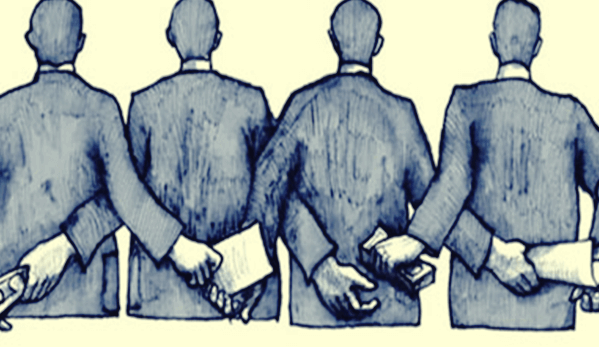It has become a common practice for all of us to complain about corruption and be surprised at the lack of decency that many people in power, especially politicians, can show. the tip of the iceberg.
Corruption is very harmful to a society, that is, breaking with the covenant that is at the heart of every society: the law also implies a perverse act, making others passive victims of harm, and more perverse if we take it into account. Keep in mind the fact that many corrupt people steal money they don’t need, encouraged only by the antisocial pleasure of enjoying others.
- “Stop fighting for the corruption around you is like cutting your throat because there’s mud out there.
- Nicolae Lorga?.
All of this is a source of deep indignation. However, there is another corruption that is not talked about much, common citizenship also participates in this logic, albeit on a much smaller scale.
The law uses a discourse that imposes limits and obligations on all members of a society. We may disagree with the law, but it is, in fact, one of the great forces that animate history: the debate around what the law proposes. Contradictions arise new laws and old ones are extinguished. Or they mix.
When you conflict with the law, there are mechanisms that force you to comply with it. No one wants to blindly obey the law. However, the consequences can often be very serious on a personal level. As long as the law is in place, we only have the ability to comply until we can amend it.
Corruption arises when a discourse on duties and obligations appears in parallel with the provisions of the law, such discourse, contrary to legal discourse, is oriented towards the pursuit of the individual good and is completely unaware of the social good. the benefit itself becomes legitimate. Others are not their equals whose rights must be recognized, but means or obstacles to the realization of their desires, so they do not count. The logic of corruption is fundamentally the individual interest.
One wonders whether it is only politicians, or people of power, who act with this logic of taking advantage of themselves, even if they do not respect the rights of others. If we look at certain situations in everyday life, we see that many people operate in this logic of corruption. Respecting the law and giving up one’s own satisfactions for the common good is not a popular attitude.
On the contrary, what most prevails is individualism, which in some societies goes to an extreme. Laws essentially become dead letter. What matters are the rules of the most unscrupulous. The law is only respected when someone is watching. Corruption invades our lives with small actions, such as “skipping the ranks” or taking advantage of someone’s friendship to gain a privilege.
Perhaps that is why large acts of corruption continue to occur, which are basically tolerated by an entire society which, instead of strictly prohibiting them, takes them as an example of their own way of acting, or simply becomes a passive witness to all. this and doesn’t want to complicate life by trying to intervene to set limits.
In addition to the economic or political damage caused by corruption, the most serious thing is how this phenomenon erodes culture, social ties deteriorate as a result of corruption, trust collapses, and a sense of authority begins to disappear.
At this point civilized behavior is beginning to be questioned, in practice the law of the strongest prevails, and what was a civilized society is becoming a group of people moving aimlessly.

